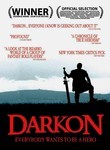…still, I’d like to suggest, as a starting point of civility, a few pointers for participants in the O.S. war. Consider it one man’s version of, “Can’t we all just get along?”
1. Hate something for its failings, not for its success.
It’s totally fine to criticize something because of its flaws-to hate Windows because it’s bloated and cryptic, for example, or the iPod because it’s too easily scratched.
But condemning something just because it’s the dominant product is just sour grapes. Arguments along the lines of “I hate Bill Gates because he’s rich” or “I hate the iPod because everyone has one” add nothing to the dialogue.
2. No condemning something until you’ve tried it.
If everyone abided by this idea, about 95 percent of all the Windows- Macintosh diatribes would evaporate overnight.
But here it is: If you haven’t tried something, then you really have no basis to comment.
3. Execution matters.
I’m so tired of reading discussions like this:
Person A: “I love Mac OS X Tiger! That Spotlight thing is so cool:
press a keystroke, type a few letters, and get an instantaneous listing every file, folder and program containing that text.”
Person B: “You pathetic loser! It’s called hard-drive indexing, and Windows XP has had it from Day One.”
Of course, the truth is that Windows Indexing Service is to Spotlight as Thomas the Tank Engine is to a bullet train. In Indexing Service, you can’t search with a single keystroke, the speed is nothing like Spotlight’s, you can’t search for metadata (115 kinds of secondary information, like music genre, Photoshop layer names, camera settings in digital photos, etc.), the index isn’t updated in real time as you create or delete documents, and so on.
It goes the other way, too. “I love how Windows XP lets me delete or rename files right in the Open or Save dialog boxes.”
“What’s the big deal? On the Mac, we just switch to the desktop and delete or rename things there.”
Sorry, but that’s just not as good as being able to do it within the dialog boxes.
The bottom line: How well something works and how elegantly it’s been built is also relevant to the “which is better” discussion.
4. Don’t make grandiose purchasing plans by guessing on technology’s future.
This pointer is directed exclusively at Mac-bashers, particularly the ones on the nation’s boards of education.
If you decide to standardize on Windows across all schools, fine. But make sure you have legitimate reasons like economics or the need to run some Windows-only software suite.
“We want the kids to learn what they’ll one day use in the business world,” however, is NOT a good reason. If you think you know what anyone will be using in 2020 (when today’s first graders will graduate from college), you must have a heck of a magical crystal ball.
Truth is, by 2020, no operating system will look anything like it does today. By 2020, we may well be using holography or tablets or glorified cellphones instead of computers. Claiming to know what company’s operating system today’s kids will be using when they graduate college, or how that software will work, is nonsense.
5. Consider that they may have a point.
Neither side’s members should be allowed to cover their ears and sing “Blah blah blah!” at the top of their lungs when they hear an argument that could rock their worldview. As long as the points are factual, fair and substantive, you should consider them.
Remember: Apple and Microsoft routinely play O.S. leapfrog and regularly adopt each other’s feature ideas; eventually, aficionados in both camps will enjoy similar enhancements to the computing experience. As we carry on the never-ending debate, try to generate more light and less heat. Only then can we discover what aspects of system software are truly valuable, and thereby usher them into existence for everyone to enjoy.
[more here]





